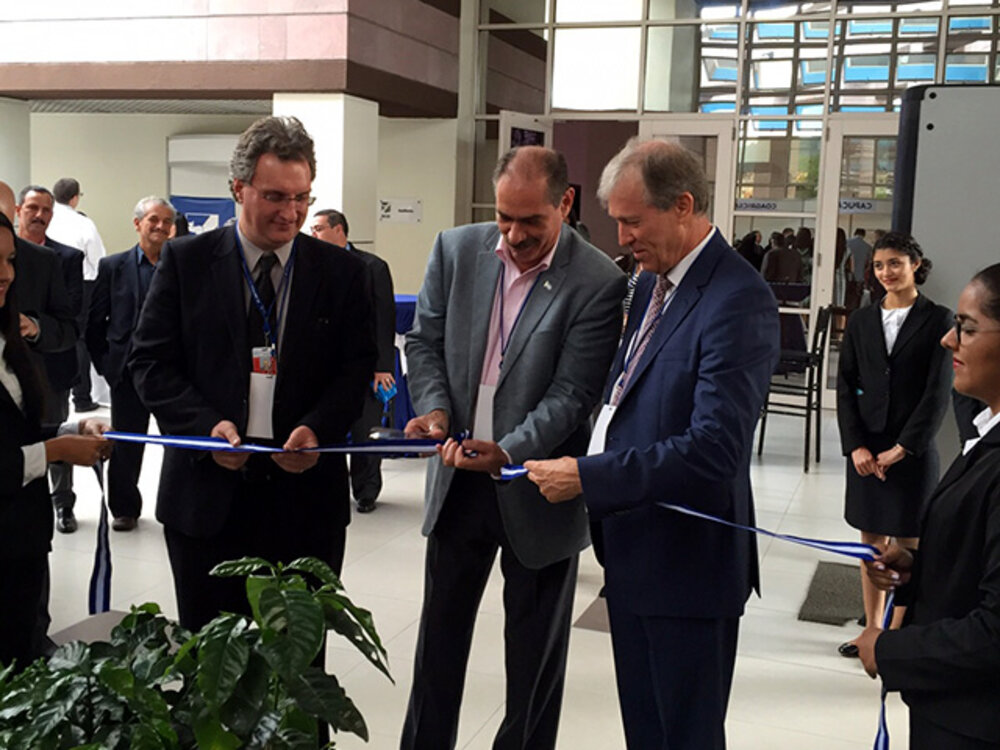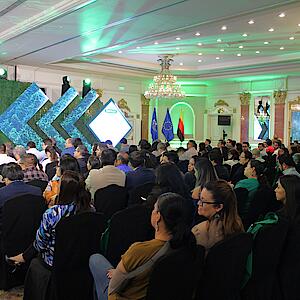CABEI promotes a greener and more prosperous region

CABEI has positioned itself at the forefront of regional MSME development by creating bankable and environmentally friendly models, such as Project CAMBio.
Tegucigalpa, October 14, 2015. - Today, the Central American Bank for Economic Integration (CABEI) in alliance with the United Nations Development Program (UNDP) and the Global Environment Facility (GEF) through Project CAMBio inaugurated the regional workshop "Contributing to knowledge management and sustainability."
The workshop, which was held in the framework of Project CAMBio’s closing ceremony, was dedicated to sharing Project CAMBio experiences in promoting initiatives to finance the sustainable biodiversity-friendly conservation of forests and mountain, coastal and marine ecosystems.
The CAMBio business model was created jointly by CABEI, UNDP and GEF to remove barriers for banks, promote businesses and foster an enabling environment for carrying out biodiversity-friendly investments at Micro, Small and Medium Enterprises (MSMEs) in Central America.
At the ceremony, CABEI Executive President Dr. Nick Rischbieth highlighted the significant support that Project CAMBio had provided to initiatives that promote environmentally-friendly productive practices. He also noted that the biodiversity and forest ecosystem conservation practices that have been promoted are essential to guaranteeing water, oxygen and life itself.
From 2008 to the present, Project CAMBio placed a total of US$56.4 million in loans through its support program for biodiversity-friendly MSMEs; created 26,078 jobs through credit for low income people in Central America; approved US$2.3 million in non-reimbursable technical assistance; supported 26,302 MSME with technical assistance; trained 885 executives from 18 financial institutions through technical assistance; and produced 613,307 quintals of certified coffee.
It is noteworthy that Project CAMBio’s Coffee and Coffee Rust Reduction Program benefitted 2,845 producers and certified 1,824 farms on more than 36 thousand hectares.
Project CAMBio benefited the following productive sectors:
• In Guatemala: coffee, cardamom, cacao and organic agriculture.
• In El Salvador: coffee certification, sustainable tourism and organic agriculture.
• In Honduras: coffee, sustainable tourism and fisheries.
• In Nicaragua: silvopastoral systems, coffee agroforestry, sustainable tourism and fisheries.
• In Costa Rica: coffee, cacao, tourism and organic pineapple





![[Translate to English:] [Translate to English:]](/fileadmin/_processed_/e/3/csm_WhatsApp_Image_2024-04-18_at_2.12.23_PM__2__590ef43ade.jpeg)
